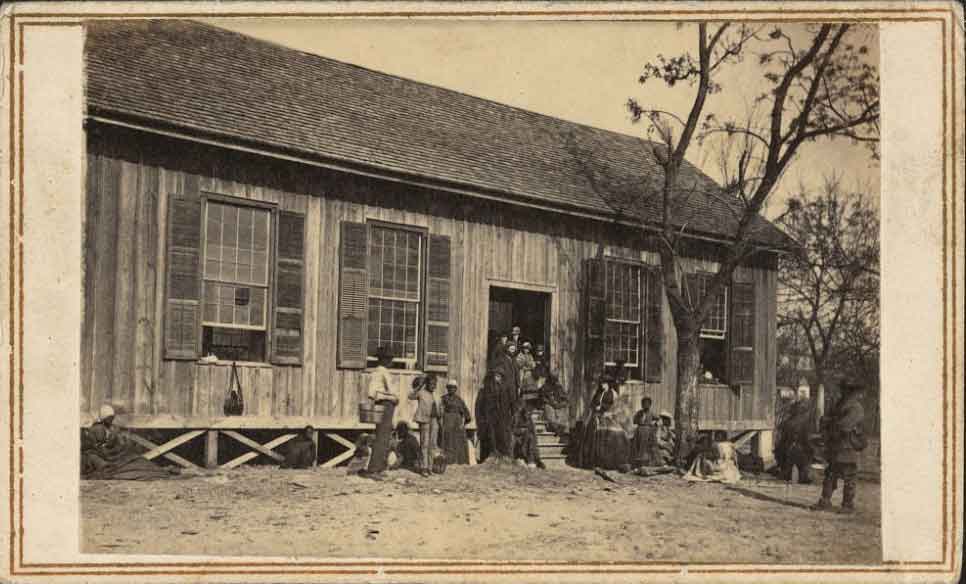For the first time in 200 years, Concord will publicly honor and celebrate the birth of one of its most inspirational daughters, Ellen Garrison.
Ellen was born in Concord in 1823, the daughter of the self-emancipated Jack Garrison, and granddaughter of the formerly-enslaved revolutionary soldier Cesar Robbins. That same year, Ellen’s uncle, Peter Robbins, a first-generation freeborn man, purchased what is now known as The Robbins House. Peter and his wife lived in one half of the house, and Ellen’s family lived in the other.
A 12-year-old Ellen participated in the 1835 Concord bi-centennial parade. The only black child in her school, Ellen had been ill-treated and ‘crowded out’ of a previous parade, so her mother had reservations about her marching in this one. But standing together with her classmate Abba Prescott, Ellen chose to walk “through the day, beneath the gaze of curiosity, surprise, ridicule and admiration.”

A freedman school on Edisto Island, South Carolina. Samuel A. Cooley, 1860s.
| Photo from Library of CongressEllen’s mother, Susan (Robbins) Garrison, was a founding member of the Concord Female Antislavery Society, which was formed during the time that Frederick Douglass visited the town to give antislavery lectures. Susan was actively involved in the struggle for securing rights for all, and certainly inspired her daughter. In 1838, both women’s names appeared alongside 200 other Concord women on a petition protesting the government’s treatment of the Cherokee people.
Ellen went on to work as a teacher in the Freedman’s Schools and served as a powerful activist around local and national questions demanding civil rights for all people. She said in a letter to the American Missionary Association as part of a teacher application:
“I have a great desire to go and labor among the Freedmen of the South. I think it is our duty as a people to spend our lives in trying to elevate our own race. Who can feel for us if we do not feel for ourselves, and who can feel the sympathy that we can, who are identified with them?”
Ellen was also the first person to challenge the Civil Rights Act of 1866 in court, thus later earning the nickname “Concord’s Rosa Parks.” Just a month after this Act was passed, Ellen (together with another black teacher) was forcibly ejected from a segregated waiting room in a Baltimore train station. Ellen described the situation in a letter on May 9, 1866:
“An outrage has just occurred which demands attention. It was nothing less than the forcible ejection of myself and Miss Anderson from the Ladies sitting room at the depot. We were thrown out. We were injured in our persons as well as our feelings for it was with no gentle hand that were assisted from that room and I feel the effects of it still.”
Having none of it, Ellen returned to the segregated waiting room, found a witness, and documented the experience to support a petition to the court for her rights. Unfortunately, the Maryland court dismissed her case – a common theme of the Reconstruction era. Nonetheless, Ellen Garrison’s bravery planted a stake in the ground for civil rights.
Ellen would continue her life’s work of teaching newly liberated people and their children. Her work took her from Concord to Boston, Rhode Island, Maryland, Kansas, and finally Pasadena, California where she spent the rest of her life.
This April 14, Concord will honor Ellen Garrison on the 200th anniversary of her birth with events at the Holy Family Parish/First Universalist Church and at the Concord Town House. For detailed information, go to visitconcord.org.


